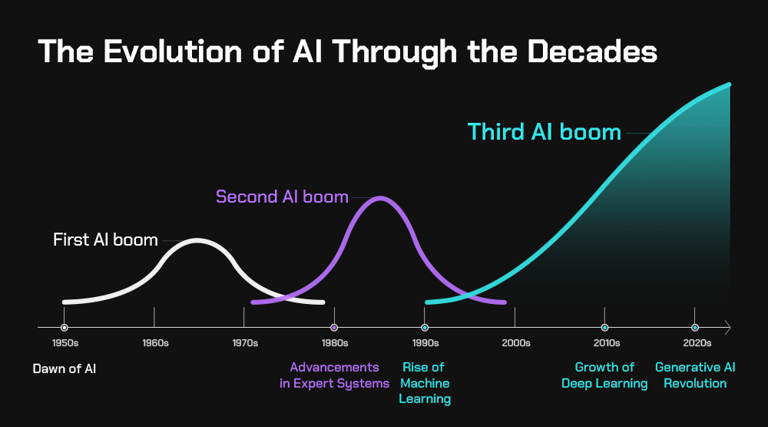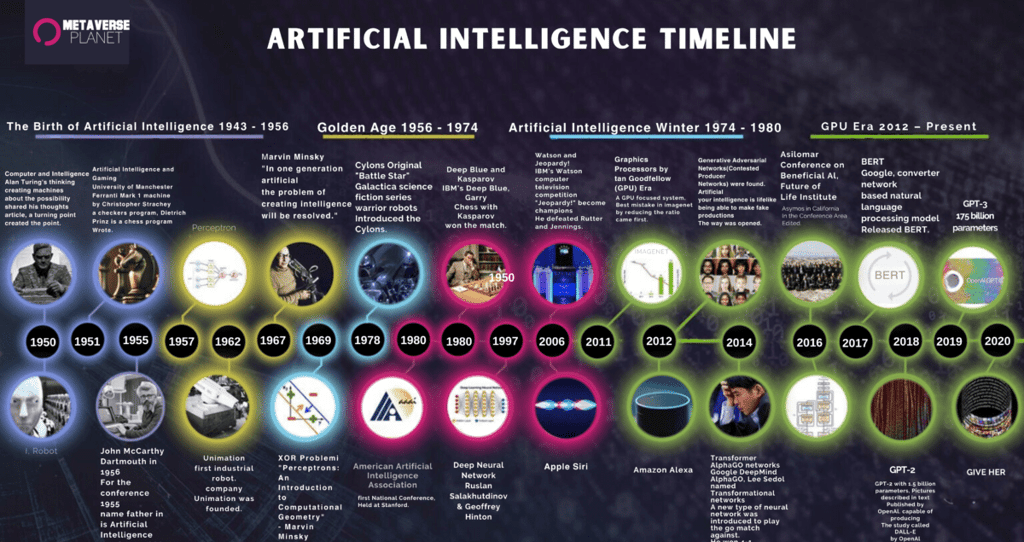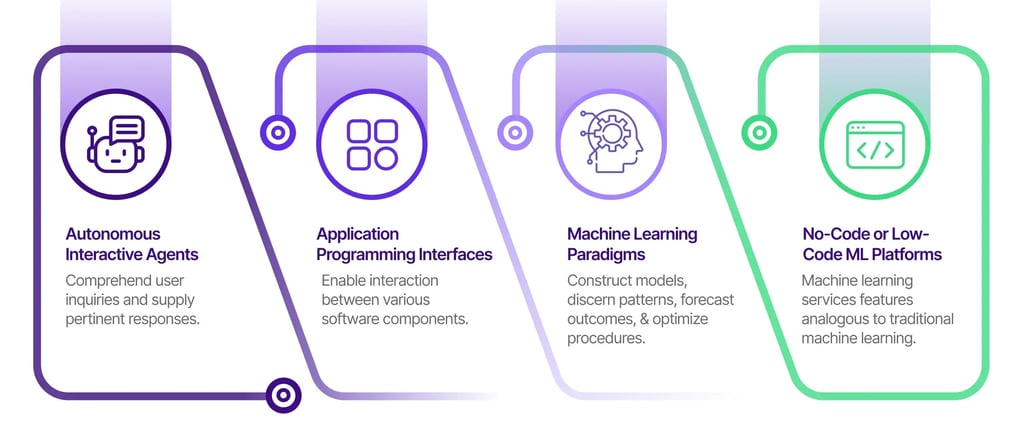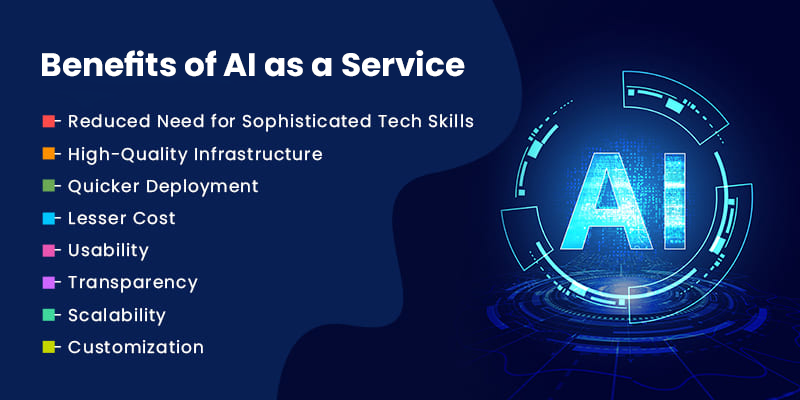AIaaS – AI as a Service: Transforming the Future of Technology
Published on: May 1, 2025 Author: Christian Sanderson
Introduction
Over the past decade, artificial intelligence (AI) has evolved at a breathtaking pace. AI now solves complex problems, enhances decision making, and powers solutions for everything from research to customer service. This exponential growth has attracted billions of dollars in investments from organizations, financiers, and governments worldwide. A Gartner survey reveals that 70% of respondents expect AI to handle an extensive range of tasks—from research and calculations to process simplification and error correction. Meanwhile, more than 57% of people favor AI managing one or two tasks, with 18% endorsing its use for over five tasks.
This article explores the realm of Artificial Intelligence as a Service (AIaaS), delving into its history, the various service types available, and its merits and demerits.
A Brief Historical Perspective on Artificial Intelligence
The concept of artificial intelligence is not new. In 1955, when John McCarthy helped coin the term, the "Logic Theorist" emerged as the first AI program—a landmark event that sowed the seeds for decades of subsequent innovation. Fast forward to 2011, IBM’s Watson took center stage by successfully demonstrating AI’s potential in solving riddles and complex problems during a quiz show. Then in 2012, Google ushered in a new era with "Google Now," an Android app feature that provided predictive and contextual information. These groundbreaking moments set the stage for the rich array of AI applications we see today.
What Is AI as a Service (AIaaS)?
Artificial Intelligence as a Service (AIaaS) exemplifies the trend toward offering advanced AI functionalities through cloud-based, third-party platforms. Instead of developing and maintaining AI infrastructure in-house or hiring a team of experts, organizations can subscribe to AIaaS models to access a broad array of AI tools on a pay-as-you-go basis. Industry giants like IBM (Developer Cloud), Microsoft (Azure), Amazon (Web Services), and Google (Cloud Platform) have all embraced the AIaaS model, making cutting-edge AI capabilities more accessible.
For an in-depth comparison of cloud platforms and a better understanding of which service best fits your needs, check out this resource on AWS vs. Azure vs. GCP – Choose Your Cloud Platform!
Types of AIaaS
The AIaaS ecosystem is diverse, encompassing several types of services that allow businesses to integrate sophisticated AI capabilities with ease. Broadly, the most popular types of AIaaS solutions include:
Bots Chatbots are now ubiquitous across websites, social media, and customer service portals. They use natural language processing (NLP) and machine learning algorithms to interpret user input and provide instant, relevant responses.
APIs (Application Programming Interfaces) APIs act as intermediaries that allow different software systems to communicate. This enables developers to incorporate AI functionalities—such as sentiment analysis, image recognition, or conversational AI—into their own applications without building these features from scratch.
Machine Learning Models Machine Learning (ML), a critical branch of AI, helps businesses analyze vast datasets to identify patterns and predict future trends. With AIaaS, even organizations without extensive data science teams can utilize pre-built ML models to streamline processes and drive key insights.
No Code/Low Code ML Platforms provide a visually intuitive interface that abstracts the complexities of machine learning, enabling users to build, train, and deploy sophisticated models without extensive programming skills. By leveraging pre-built modules, drag-and-drop functionalities, and automated workflow pipelines, these platforms democratize AI, reduce development time, and empower non-experts to rapidly generate data-driven insights and solutions.
Merits of Using an AIaaS Platform
Adopting AIaaS offers several benefits that make it an attractive option for organizations of all sizes:
Flexibility: AIaaS platforms are highly customizable, allowing businesses to adapt the service according to their unique needs and scale the solution as they grow.
Ease of Setup: These platforms require minimal installation, enabling businesses to access AI functionalities quickly and effortlessly.
Fee Transparency: With clear pricing models, you only pay for the features you use. This prevents unforeseen expenditures and allows for cost management.
Scalability: Start small and increase your usage as your business requirements expand without the risk of overcommitting to massive upfront costs.
Cost-Effectiveness: By bypassing the need for significant capital investment in infrastructure and human resources, AIaaS presents a financially viable solution to integrate advanced AI functionalities.
Demerits of Using an AIaaS Platform
While AIaaS presents numerous advantages, it is important to consider the challenges that come with this model:
Security Concerns: Since AIaaS relies on data sharing with third-party vendors, there is an inherent risk regarding data privacy and the potential exposure of sensitive information. Organizations must ensure proper data protection measures are in place.
Long-Term Costs: Although initial investments are low, accumulating monthly fees for multiple AI features can become expensive over time, potentially leading to higher long-term costs.
Lack of Transparency: Many AIaaS providers do not offer insights into their underlying algorithms. This "black box" nature can make it difficult for users to fully understand how data inputs are transformed into outputs.
Vendor Dependency: Relying on external vendors means that your organization may be impacted by any changes or discontinuations made by these providers, making it crucial to assess long-term vendor stability.
Conclusion: Looking Toward the Future of AIaaS
As AI continues to advance at an astonishing rate, the need for accessible and scalable AI solutions has never been greater. AIaaS packages this evolving technology into a service model that allows organizations to harness the power of AI without the burden of developing and maintaining complex infrastructure. Market predictions suggest that AIaaS is poised for explosive growth, with an expected market valuation of over USD 100 billion by 2025 and a staggering annual growth rate of 34.9%.
For businesses aiming to stay competitive and innovative, embracing the AIaaS model represents a strategic leap forward. Whether you’re a startup or a large enterprise, AIaaS offers an agile, cost-effective path to integrate AI-driven solutions and transform operations.
If you need expert guidance on implementing AIaaS tools tailored to your business needs, consider partnering with an SME or a seasoned team. Whose expertise can steer your organization toward smart, data-driven evolution at an affordable cost.
Additional Resource Topics to Consider
Top 15 AWS Machine Learning Tools in the Cloud
6 Ways AIOps Optimizes Cloud Security
Amazon Aurora Vs Amazon RDS Comparison
MongoDB Vs RDBMS: Comparing the Big 2 Database Services
Serverless Vs Containers: Comparison Between Top Two Cloud Services
Which Cloud has Better Private Connectivity: AWS or Azure or GCP?
By understanding and embracing AIaaS, organizations can innovate faster, reduce costs, and transform their business processes. With robust advantages and manageable challenges, AIaaS stands as a pivotal element in modern technology adoption and strategic growth.
Final Note
I hope you found the above information useful, particularly if you are currently involved in—or planning to enter—the AIaaS space. These insights serve as key considerations for anyone navigating this dynamic field. I, too, am continuously learning on my AI journey and would welcome the opportunity to connect with like-minded professionals and organizations. If you’d like to share ideas, exchange insights, or simply engage in a thought-provoking discussion about AI, please feel free to reach out.
Thanks












